Deadly winter blizzard leaves US in pre-Christmas deep freeze
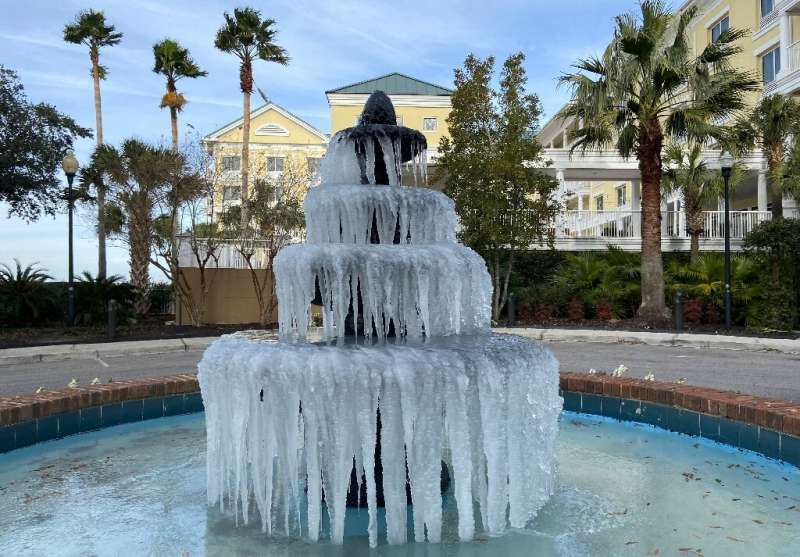
A fearsome winter storm that pummelled the United States with blinding snow and powerful Arctic winds left over half a million customers without power Saturday as thousands of cancelled flights stranded travelers making last-minute dashes for Christmas.
At least 17 weather-related deaths have been confirmed across eight states as heavy snow, howling winds and dangerously frigid temperatures kept much of the nation, including the normally temperate south, in a frozen grip for a third straight day.
In hard-hit New York state, Governor Kathy Hochul deployed the National Guard to Erie County and its main city Buffalo, where authorities said emergency services have essentially collapsed in the face of extreme blizzard conditions.
One couple in the lake-side city, which sits across the border from Canada, told AFP that with the roads completely impassible, they would not be making a 10-minute drive to see their family for Christmas.
"It's tough because the conditions are just so bad... a lot of fire departments aren't even sending out trucks for calls," said 40-year-old Rebecca Bortolin.
Her fiancee Ali Lawson is having back pain, but plans to tough it out at home because driving to the hospital is just too dangerous.
"We can currently see across the street, but last night we couldn't see past our porch," said Lawson.
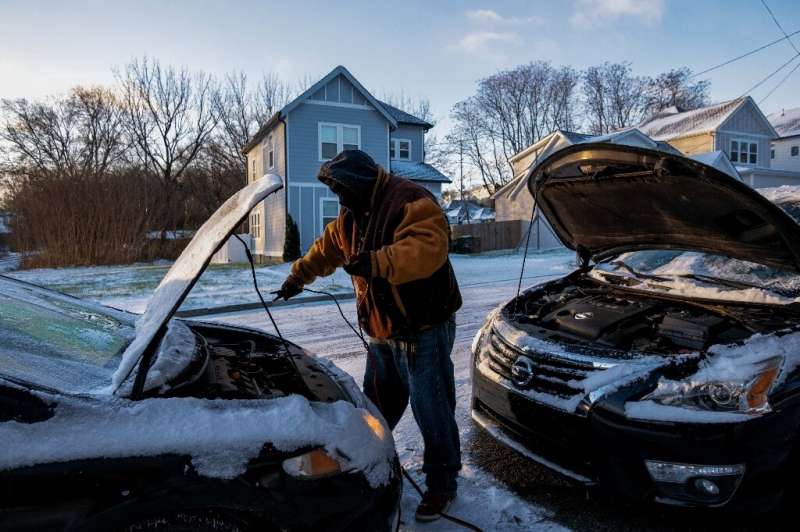
The "bomb cyclone" winter storm, one of the fiercest in decades, had already forced the cancellation of over 2,800 US flights on Saturday and the delay of over 6,600 more, a day after nearly 6,000 were scrapped, according to tracking website Flightaware.com.
Transportation Secretary Pete Buttigieg tweeted Saturday that "the most extreme disruptions are behind us as airline and airport operations gradually recover"—words that travelers stranded at airports including Atlanta, Chicago, Denver, Detroit and New York were holding on to.
New York City resident Zack Cuyler, whose flight home to Houston on December 22 has been postponed then cancelled twice this week already, was "pretty steamed" about the chaos.
The 35-year-old now hopes to reach his loved ones by December 25. "I'm just glad I'll get to see my family for Christmas," he told AFP.
Road ice and white-out conditions also led to the closure of some of the nation's busiest transport routes, including the cross-country Interstate 70, parts of which were temporarily shut down in Colorado and Kansas.
The National Weather Service warned about lethal conditions and urged residents in affected areas to remain indoors. On Friday, it said wind chills had sent temperatures plunging to -55 Fahrenheit (-48 Celsius).
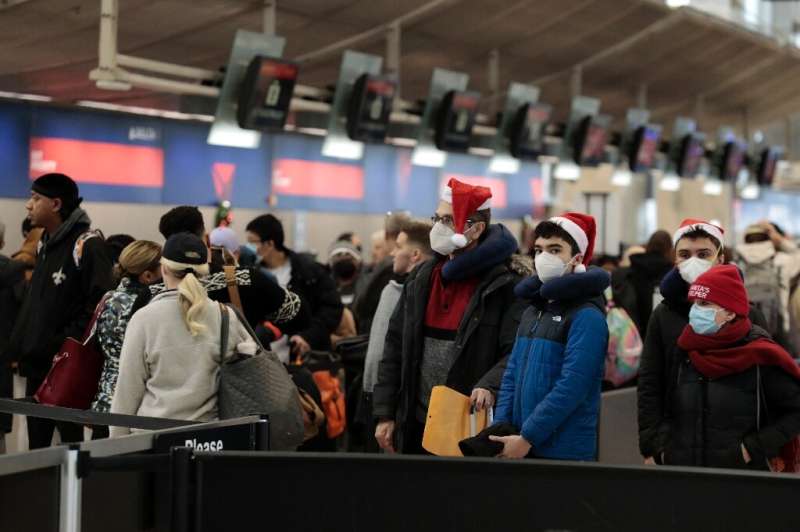
The biting cold is an immediate concern for the nearly 530,000 electricity customers who were still without power as of 2200 GMT Saturday, according to tracker poweroutage.us.
Some cities, including in the state of North Carolina, began implementing rolling blackouts due to high power demand, in some cases leaving people unable to safely heat their homes.
Frustration growing
In El Paso, Texas, desperate migrants who had crossed from Mexico huddled for warmth in churches, schools and a civic center, Rosa Falcon, a school teacher and volunteer told AFP.
But some still chose to stay outside in frigid temperatures because they feared attention from immigration authorities, she added.
In Chicago, Burke Patten of Night Ministry, a nonprofit dedicated to helping the homeless, said: "We've been handing out cold weather gear, including coats, hats, gloves, thermal underwear, blankets and sleeping bags, along with hand and foot warmers."
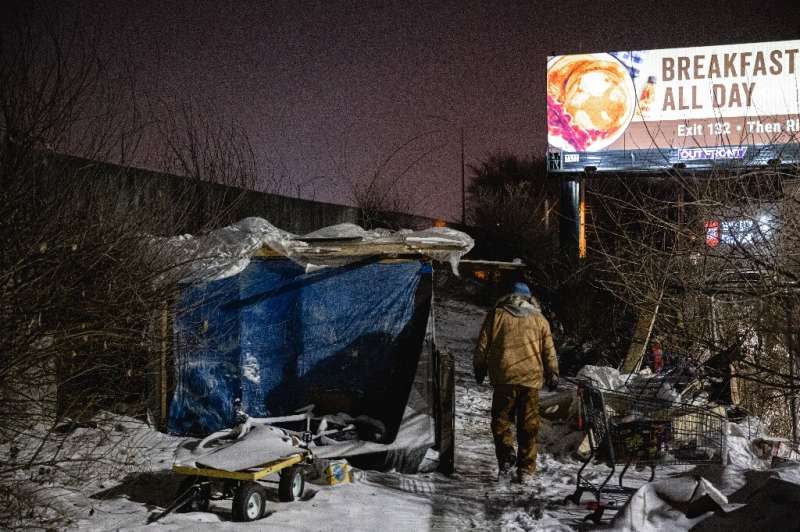
The National Weather Service forecast that dangerously cold conditions would continue throughout the central and eastern United States over the weekend before temperatures returned to more normal seasonal weather next week.
Canadian authorities have also issued severe weather warnings. Hundreds of thousands were left without power in Ontario and Quebec provinces, while many flights were cancelled at airports in Vancouver, Toronto and Montreal, and some trains stalled.
Flooding, fierce winds
In the US, transportation departments in several plains states reported near-zero visibility whiteouts, ice-covered roads and blizzard conditions, and strongly urged residents to stay home.
Drivers were being warned not to take to the roads—even as the nation reached what is usually its busiest time of year for travel.
By Friday afternoon, the storm had acquired the status of "bomb cyclone" after air pressure dropped precipitously over 24 hours.
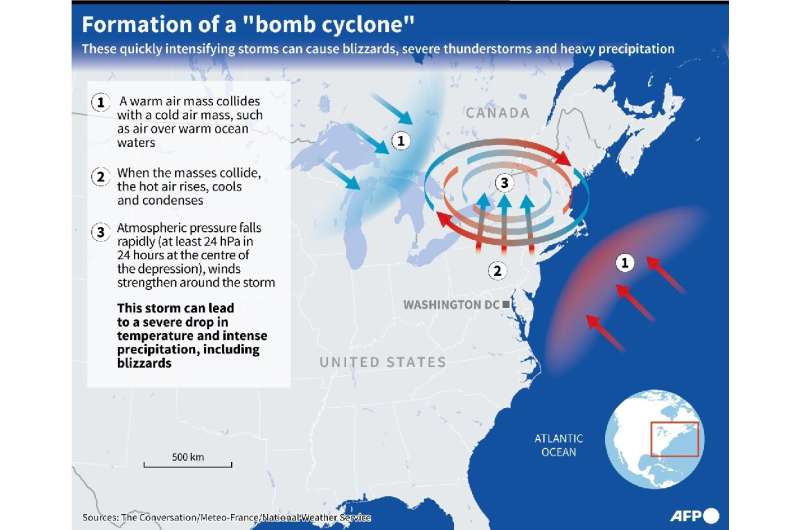
Bomb cyclones produce heavy rain or snow. They can also cause flooding at coasts, and generate hurricane-force wind.
Meteorologist Kelsey McEwen in Toronto tweeted that waves of up to 26 feet (eight meters) were reported in Lake Erie, while in Ohio's Fairport Harbor, winds gusted to 74 miles (120 kilometers) per hour, the NWS tweeted.
© 2022 AFP





















